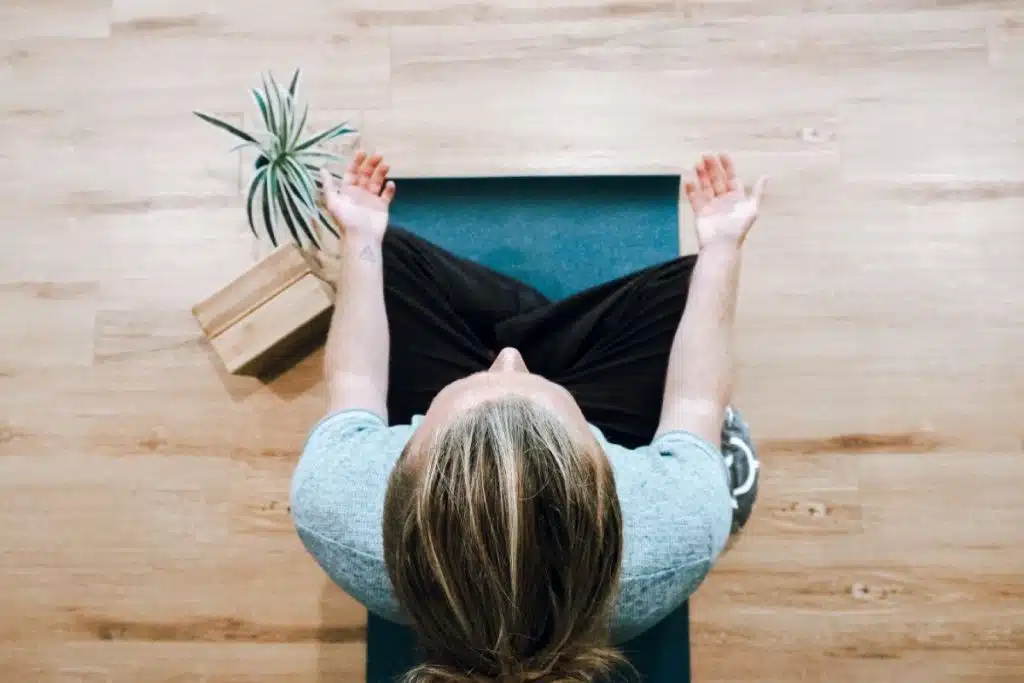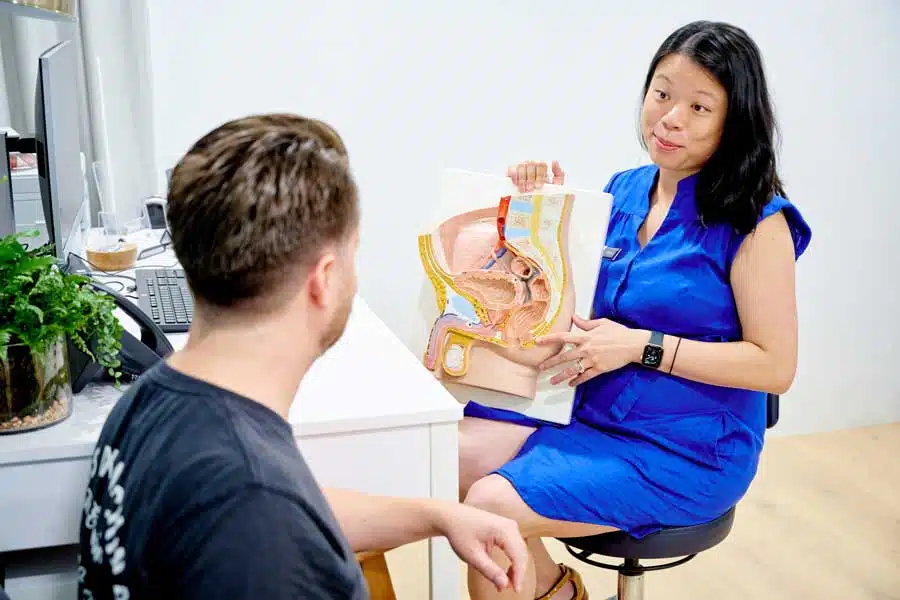Did you know that jaw pain and pelvic pain have a connection?
When you think of issues with pelvic pain or pelvic tension, issues with the jaw joint probably don’t come to mind. And yet, for the 1 in 10 Australians who deal with jaw locking and jaw clicking (TMJ) issues, pelvic pain and jaw pain are actually connected!
This is largely due to stress, which can have a huge impact on both TMJ pain and pelvic pain. These two sites are common areas for the body to hold stress, which is why having pain in either or both of these areas as a result of stress is so common. Also, these two parts of the body actually form in the womb at the same time during the embryo stage, which could explain this interesting link.
So, how do we address this pain? It may come as an additional surprise that massage, mindfulness, and relaxation can see some impressive results when it comes to addressing TMJ pain. Read on to learn more about the ways these practices can help you get back to living pain-free if you are dealing with TMJ pain, and/or pelvic pain.
What is TMJ?
First, let’s gain a firm understanding of conditions that cause jaw pain and pelvic pain, to understand what’s happening in the body. We’ll start with TMJ pain.
TMJ stands for “temporomandibular joint” which is a joint that connects the jaw bone to the skull. It acts similarly to a sliding hinge, moving alongside the jaw muscles when you open and close the mouth.
Those dealing with TMJ pain are experiencing pain in the jaw joint and/or overall jaw area. This pain can radiate to the cheeks and temples and can lead to additional TMJ symptoms like teeth clenching and jaw grinding, as well as headaches, overall pain with jaw movement (chewing, biting, talking, etc.), facial pain, odd sensations in the ear, and neck pain/neck stiffness.
What Causes TMJ?
TMJ pain can be caused by a number of different issues, including teeth clenching/grinding, trauma to the face, orthodontic/oral health issues, arthritis in the joint, dislocation of the jaw, and in many cases, stress.
Patients with TMJ often develop this condition as a byproduct of stress, which can lead to excessive jaw clenching and jaw tension, both consciously and unconsciously. When left untreated, a small TMJ problem can worsen, going from jaw tension to severe pain.
5 Tips for Relieving TMJ Symptoms
If you’re looking for quick fixes to reduce jaw pain or facial muscle pain, you can try the following during TMJ treatment:
- TUTALC – Hold the tongue up, teeth apart, and lips closed, for the optimum relaxed jaw position
- Avoid clicking the jaw or pushing into the pain
- Do not rest your chin on your hand when at a desk/table
- Avoid clenching teeth together to reduce joint pain
- If jaw is locked, try a soft food diet
What is Pelvic Tension?
Pelvic tension is a kind of pelvic floor dysfunction/disorder where the pelvic floor muscles are clenched or tense, leading to pelvic pain, pain during intercourse, difficulty passing urine/faeces, lower back pain, and other pelvic organ issues.
What Causes Pelvic Tension?
Pelvic tension can result from a number of different issues, including injury to the pelvic muscle/pelvic area, infection, surgical complications, bladder/bowel dysfunction, and more. However, like TMJ pain, a common cause for pelvic tension can also be stress.
Stress stores in the body, and can lead to a tensing of the muscles including those in the pelvic floor. When left unchecked, this can cause a tense pelvic floor, and as a result, different pelvic health issues.
Easing Tension with Massage, Mindfulness, and Relaxation
When exploring treatment options for severe TMJ pain relief or pelvic tension, you may be tempted to hop right into different jaw exercises, surgery, or other medical procedures. We recommend easing into it with massage, mindfulness, and relaxation, as they have a number of benefits for this kind of pelvic/TMJ issue.
According to Jacqui Carr (APAM at Sydney Pelvic Clinic), these treatment styles can do wonders. Talking in regards to pelvic pain, Carr shares:
“Massage enables relaxation of the external pelvic muscles, which creates an improved environment for the pelvic floor muscles to function effectively. The effect of meditation is to reduce the arousal in the central nervous system resulting in overall relaxation. Reducing the arousal in the nervous system to reduce the time spent in fight or flight zone enables all muscles in the body to relax, including the pelvic floor. Mindfulness can have a similar effect to tuning into and feeling what your body is experiencing. This will enable someone to actively change the contracted state of their pelvic floor muscles to relax.”
The mind and body share an amazing connection. If stress in the mind can manifest in physical pain in the body, then it would make sense that practices that relax the mind could work to reduce the resulting pain!
Practices that reduce stress to the muscles, whether physically through massage, or mentally through mindfulness, can do wonders to ease TMJ pain or pelvic pain in the body. With time, they can do a lot to help you live pain-free.
Getting Treatment with Sydney Pelvic Clinic
If you want help starting a journey to pain-free living with massage, mindfulness, and relaxation, we’re here to help.
The Sydney Pelvic Clinic offers a number of yoga-based classes and workshops that can help you learn how to approach breathing exercises and mindfulness practices that reduce muscle tension. We also have a team of dedicated physiotherapists who can assist you with other treatment options, to get you pain-free!

